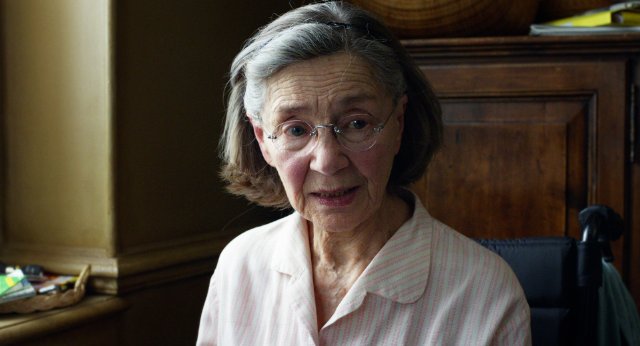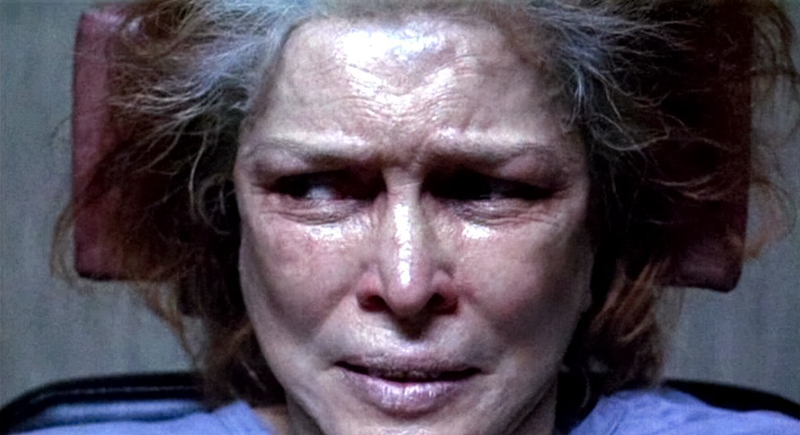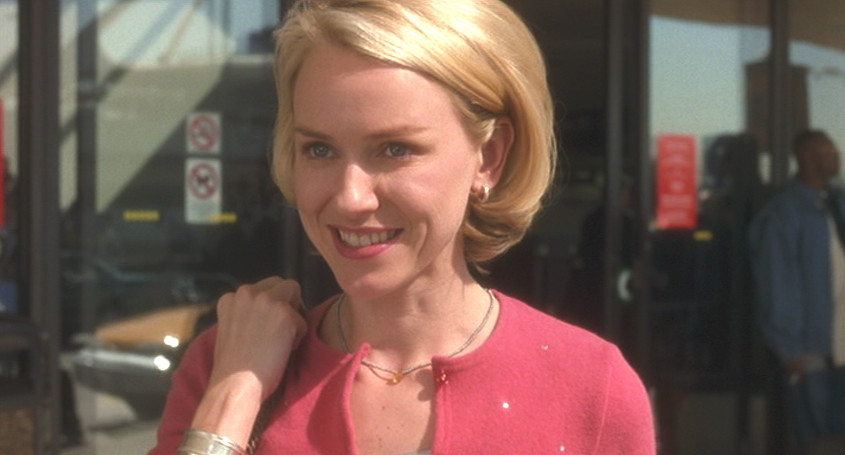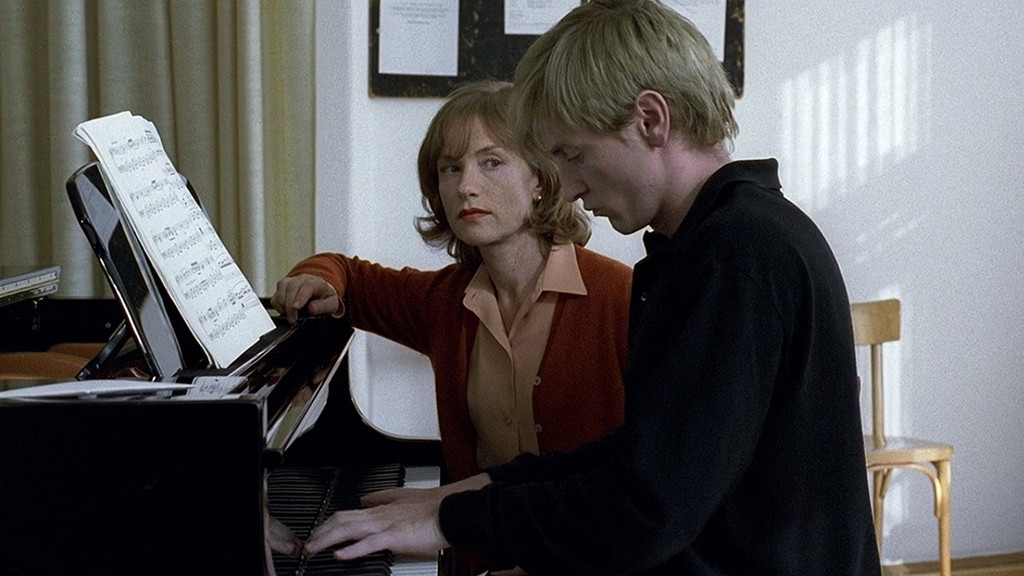5. Emmanuelle Riva – Amour

The late, great actress Emmanuelle Riva had a career that in the end was defined by two incredible roles. The first was her 1959 breakout performance in Hiroshima, Mon Amour, a film that many Critics use to define the French New Wave movement and is still regarded to this day as one of the greatest films ever made. The second came just five years before her death at 89 years old. That film is of course Michael Haneke’s Amour. This was the role that earned Riva the most success, winning her multiple awards for Best Leading Actress including a BAFTA and César.
In the film, Riva plays an elderly woman who suffers a debilitating stroke that paralyses the right side of her body. Her husband (played by another screen legend, Jean-Louis Trintignant) does his best to look after her but finds the strain of her constantly diminishing health too much for him to handle. The film is heart-wrenching from start to finish, especially Riva’s performance as a woman who despite her fragile appearance is determined to live out the rest of her life on her own terms.
It is a performance that is as much empowering as it is tragic as Riva portrays Anne as a woman of strong will and principles, standing firm throughout the film that she doesn’t want to be put in a nursing home, preferring to be simply put out of her misery instead.
As the runtime progresses, the more the audience hopes that Anne’s wish is fulfilled, as her eyes that were once so full of life become more and more desolate and empty with each passing minute. You can’t watch the film without making the assumption that Riva is in fact confronting her own mortality, and as a result leaves behind a performance will continue to be revered long after her passing.
4. Cate Blanchett – Carol

While it is a question that can be debated among film fans for a long time but if I had to name the best actress in working in Hollywood right now, I would have to say Cate Blanchett. Her work in both big budget blockbusters as well as independent art-house pictures is unmatched by almost every other actor working today. Over the past two decades she has deservedly won two Oscars for her work in The Aviator and Blue Jasmine, as well as receiving more critical acclaim in other challenging roles such as in Notes on a Scandal and I’m Not There. However, if I had to name her best performance so far, it would have to be her work in Todd Haynes’ 2015 romantic drama Carol.
The film takes place in New York during the 1950’s and follows the titular Carol (played by Blanchett), who is a glamorous woman currently undergoing a messy divorce with her husband while entering into a forbidden affair with a younger woman named Therese (played by Rooney Mara). Like most works by Todd Haynes, who is a titan of LGBT cinema, Carol is a provocative film dealing with complex erotic themes.
The performances from both leading ladies are nothing short of extraordinary, however it is Blanchett that steals the show. She plays Carol as a woman who has been forced to repress her true feelings and emotions for years as a result of her marriage and the society she lives in, yet still manages to seduce Therese with a single look or even a simple gesture. Blanchett’s performance is a master class of restraint; her eyes give more away about the character than words ever could, showcasing both pure passion and intense pain in a woman that has everything to lose.
3. Ellen Burstyn – Requiem for a Dream

With a film career that spans the better part of five decades, Ellen Burstyn has firmly established herself as one of the most well respected veteran actresses that is still working to this day. After making a name as a leading lady during the fabled ‘New Hollywood’ era, her most notable performances came in celebrated classics such as The Last Picture Show, The Exorcist and Alice Doesn’t Live Here Anymore, the latter earning her an Oscar for Best Actress in 1975. Twenty-five years later, she teamed up with Darren Aronofsky in his drugs-based drama Requiem for a Dream, where Burstyn delivered a truly heart-breaking turn that many film-lovers see as her career best, me included.
Burstyn plays Sara Goldfarb, a Brighton Beach widow who spends her days eating candy and watching television. When she receives an invitation to appear on her favourite game show, she attempts to lose weight for her TV appearance that leads to a highly damaging amphetamine addiction. Burstyn’s performance is haunting to say the least as her addiction spirals more and more out of control until her sense of reality is so distorted that she is forcibly admitted into a psychiatric hospital.
The one scene in particular that stands out is when Sara gives a monologue that explains to her son just how it feels to be old. Burstyn’s acting was so sensational in this scene that is caused multiple member of the crew, including the cinematographer, to cry on set during take. Many still feel that Burstyn was robbed of a second Oscar for this role and it’s easy to understand why. This is a performance that achieved legend status when it first came out, and it still holds up twenty years later.
2. Naomi Watts – Mulholland Drive

David Lynch has built up a reputation as perhaps the most disturbingly unique filmmaker ever to have lived. His work in both film and television has been met with much acclaim for his trademark surrealist dreamlike imagery.
One of the most underappreciated talents of the legendary director is his ability to create unforgettable roles then proceeding to cast the perfect actors to play them. These include John Hurt as John Merrick in The Elephant Man, Dennis Hopper as Frank Booth in Blue Velvet and of course his frequent collaborator Kyle MacLachlan as Dale Cooper in Twin Peaks. However, the best performance he ever got out of a performer came from Naomi Watts in his 2001 neo-noir masterpiece Mulholland Drive.
Watts gives not one but two incredible performances in the film as she plays a double role. The first being Betty Elms, a sweet girl-next-door type with aspirations to become a Hollywood actress that one night comes across and befriends a mysterious amnesiac woman (played by Laura Harring). The second role comes in the final third of the film where Watts switches to Diane Selwyn. The contrast of the two roles is utterly transformative as Diane is a possessed lunatic who obsesses after an actress (also played by Laura Harring).
How Watts manages to flip from two completely different roles is simply breathtaking, showcasing such immense talent as she goes from an innocent beauty to corrupted ugliness. The role was a breakthrough for Watts, who had struggled to make an impact in movie industry for years until then. But almost like in a Hollywood fairytale, Mulholland Drive catapulted her straight to the top with a performance that will continue to be revered as one of the all time best in movie history.
1. Isabelle Huppert – The Piano Teacher

If we were to judge the greatest actress in the world right now based on sheer guts and willingness to tackle some of the most challenging roles any actor could possibly play, then I don’t think there is anyone alive that can match Isabelle Huppert.
Known worldwide for her incredible ability to convey various emotions with the greatest of ease, she can be funny and charming in one minute then icy and disdainful in the next. Her work this century has been second to none, her double efforts in 2016 with Elle and Things to Come were unanimously praised. However, her finest work to date came in 2001 with longtime collaborator Michael Haneke’s The Piano Teacher.
Needless to say, like most films by Haneke, The Piano Teacher is not an easy watch. However, it is essential viewing for anyone who wishes to see one of the greatest performances of all time. Huppert plays an unmarried piano teacher whose extreme loneliness and sexual repression leads to her having sadomasochistic fantasies about one of her students. Huppert plays the role with a perfect blend of cold intellectualism and intense suffering, eventually consumed by lust and desire to the point of a complete psychotic breakdown.
The final scene is perhaps the finest example of acting ever put on film, after being rejected and ignored by her student who had just raped her the night before, she proceeds to stab herself in the shoulder. Her masochistic tolerance to pain and self-hatred combine to create the most heartbreaking depictions of despair ever seen in cinema. Huppert is often applauded for the fearlessness she exhibits in her roles and in the case of The Piano Teacher; it’s difficult to think of any actress past or present that could have matched her bravery in the role.